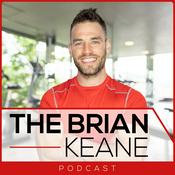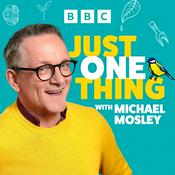252 episodes

250. Hand in Hand Parenting
11/6/2025 | 1h 4 mins.
Is the true heart of pediatrics found in the connection between practitioner and family?In this powerful episode of Pediatric Meltdown, Dr. Lia Gaggino sits down with physician, educator, and hand-in-hand parenting advocate Dr. Pam Oatis, who brings decades of primary care and hospital experience to the forefront. Together, they explore how listening, humility, and authentic relationships transform patient outcomes far beyond medical treatments alone. From the challenges of working in high-need communities to navigating tense family moments and exploring ethics in end-of-life care, this episode delves into the artistry that makes pediatric medicine so uniquely soul-filling. If you’ve ever questioned whether technical skill is enough—or wondered what truly heals—this conversation will invite you to see the science of medicine through the eyes of connection and compassion. Don’t miss the life-changing insights you’ll carry into every patient encounter.Be sure to catch the special announcement in the Takeaways.[0:01 - 07:59] Leaning Into Pediatrics: Beginnings, Inspiration, and Learning From FamiliesUnderstand why primary care pediatrics is infinitely rewarding—not just for the broad medical knowledge it demands, but for the lifelong learning about people, relationships, and cultures it provides.Learn the importance of setting parents at ease through open-ended questions and authentic appreciation, establishing trust and safety from the very first visit.Explore how humility and willingness to learn from families reveal the limitations of one-size-fits-all approaches and fuel long-term, mutually respectful relationships.Hear personal stories illustrating the deep impact of simple listening skills, such as appreciating each parent and seeing profound transformation in both relationships and care outcomes.[08:00 -16:40] The Power of Listening and Cultural Humility in Pediatric CareUncover how being attuned to parents’ fears and self-doubt allows physicians to connect deeply, providing reassurance and support that transcends medical advice.Examine situations where cultural differences and past experiences inform parenting approaches, challenging providers to pause, listen, and reflect rather than judge.Appreciate how open, honest dialogue about discipline and race can lead to decades-long partnerships founded on mutual respect and understanding.Acknowledge that the wisdom and resilience of families, when honored, can lead to better outcomes than following protocols alone.[16:41 - 26:01] Human Connection: Biology, Society, and the Foundation of CareInvestigate the deep human need for connection, acknowledging our social wiring and the essential role that physical and emotional closeness play from birth through adulthood.Discover why the medical “team sport” approach leads to improved outcomes—not just for children, but for providers and families navigating medical complexity together.Identify the under-recognized burdens society places on parents and why framing parental challenges as cultural rather than personal failures empower families.Explore how respect, dignity, and honest collaboration form the backbone of effective care—and why accurate patient histories and trusting relationships matter as much as diagnostics.[26:02 - 07:59] From Touch to Teamwork: Bioethics, Palliative Care, and Listening PartnershipsLearn how physical touch is not just diagnostic, but profoundly healing, fostering trust and well-being in children and families.Understand the evolution of bioethics and palliative care as disciplines built on listening, respect, and honoring families’ definitions of meaning and...

249. The Pediatric Meltdown Podcast: Behind the Scenes
04/6/2025 | 49 mins.
Are you curious about what really happens behind the microphones of a successful pediatric podcast—and the unconventional journeys that brought an incredible team together?In this special milestone episode of Pediatric Meltdown, host Lia brings her entire production and strategy team on-air for an unfiltered, dynamic conversation. Discover the circuitous career paths that shaped a jazz singer-turned-podcast producer, a teacher turned ADHD coach and social media strategist, and a web developer with a nomadic spirit. Uncover the highs, lows, and learning curves of building a polished show from the inside out—including struggles with self-promotion, harnessing social media, and the mounting pressures (and joys) of creative collaboration. If you've ever wondered what it takes to sustain a podcast for (close to) 250 episodes, or you’re searching for inspiration to pivot in your own career, this story of grit and reinvention will leave you rethinking what’s possible.[00:02 - 10:04] How the Team Came Together & Podcast OriginsThe show’s launch was serendipitous, sparked by a leap of faith rather than a long-held ambition to podcast.Early challenges with off-shore podcast management led to seeking more control and expertise locally.The pivotal connection to a new producer happened via networking with Adam Schaeuble of Podcast Business School.The team shares first impressions and mutual support, setting the collaborative tone for the episode.[10:05 - 15:57 ] Creative Pivots, Building Skills, and Making MediaTeam members discuss how their entertainment, teaching, and customer service backgrounds unexpectedly prepared them for podcasting and digital media.D.R.’s “Mouthy Broad Media”company name was inspired by a personal family story, blending creativity with homage.The learning curve of audio, websites, and social strategy is highlighted as an ongoing, shared challenge.The importance of curiosity, open-mindedness, and adapting to unexpected opportunities is emphasized.[15:58 - 34:30 ] The Rewards and Hurdles of Content Creation & PromotionSocial media emerges as both an essential tool for growth and the greatest challenge for the host, who dislikes self-promotion.Each team member brings different comfort levels and tactics for tackling visibility and audience engagement.Discussion of burnout, professional transitions, and how the pandemic prompted new career directions.Strategies for supporting each other (and listeners) through ADHD, workflow experimentation, and honest dialogue about what works (or doesn’t).[34:31 - 43:14 ] Leveraging Team Strengths: Services, Resources & Lessons for ListenersThe team shares their current services: web design, social media strategy, podcast production, ADHD coaching, and consulting.Emphasis on collaboration (“it’s all right here”)—listeners are encouraged to reach out for services or to get started themselves.Honest reflections on the tricky pursuit of monetization and the value of creative fulfillment.Recommendations for further learning, including Colleen Cullinan’s ADHD series and Peter Jensen’s adult ADHD episode.[43:15 - 48:49] Dr. G’s TakeAwaysResources Mentioned in the Episode:D.R. Fay - MouthyBroadMedia.comMargaret Faucella -

248. Conversation with My Daughter: Soft Body Baddie
28/5/2025 | 35 mins.
How do we help kids and teens when social media is fueling a resurgence of body image issues and eating disorders? In this special conversation, Lia’s daughter, Julia Parzyck shares her personal and professional journey navigating the tumultuous landscape of body acceptance in a world obsessed with appearance. The episode explores the influence of social media platforms, like TikTok and Instagram, and the impact they have on pediatric mental health and body positivity. Listeners will discover practical parenting strategies rooted in empathy, compassion, and my own past mistakes. Body acceptance is an ongoing journey, not a destination. Are we ready to support the next generation in building resilience against the ever-present pressures of body image issues?[00:01 - 06:22] The Shifting Landscape of Body Image and Social MediaExplores how diet culture and body expectations have worsened for teenagers in the age of TikTok and “skinny talk,” surpassing early 2000s pressures.The proliferation of pro-eating disorder content, now openly accessible through social media, and how it’s masked as harmless tips.Contrasts curated body-positive environments with the harsher realities faced by today’s youth on unchecked platforms.Highlights the rise of the “skinny talk” hashtag/movement and its troubling normalization of disordered behaviors and comparison.[06:23 - 11:39]Owning Softness: From Childhood Stories to Social AdvocacyJulia redefines “softness” as a source of strength, both in body and emotions, coining the phrase “soft body baddie” for her community.Childhood anecdotes—ranging from fashion flair to forming the hilariously named "labia band"—remind listeners of the roots of self-expression.Explores how embracing personal quirks and struggles, like anxiety and neurodivergence, leads to greater empathy in work with children and coaching.Reflects on how family dynamics and navigating outspoken personalities shape resilience, communication, and mutual growth.[11:40 -19:47]Healing, Boundaries, and Building a Modern IdentityDiscusses the transformative impact of family therapy, learning emotional independence, and accepting that parents can’t always “fix” pain.Julia’s journey through heartbreak (a called-off wedding) reveals the non-linear, ongoing process of healing and redefining self-worth.Explores the leap of faith required to pursue a career in body-positive coaching and online content, with all its uncertainties.Highlights the value of embracing risk, letting go of the need to “do it all over,” and recognizing how adversity can fuel growth and new purpose.[19:48 - 29:22] Compassion, Societal Pressures, and Looking ForwardShares insights on how political landscapes influence fashion, body ideals, and the subtle ways women are controlled through image and expectation.Resist setting rigid future goals, focus instead on finding joy, balance, and meaning in work and life, post-trauma.Stresses that body image work is lifelong, and that society will likely never “fix” its obsessions—progress is about grace, not perfection.Leaves listeners with the message that taking up space, nurturing empathy, and living for personal fulfillment, not external approval, is an act of quiet revolution.[29:23 - 35:21] Dr. G’s TakeAwaysConnect with Julia Parzyck Instagram: Fit Fat and All That Here are some more episodes you may...

247. Human Trafficking: What Pediatric Clinicians Must Know
21/5/2025 | 1h
Have you ever considered that victims of human trafficking might be walking into your clinic, hidden in plain sight, longing for someone to notice their silent signals? In this episode of Pediatric Meltdown, host Dr. Lia Gaggino sits down with Dr. Dena Nazer , a leading child abuse pediatrician, to dispel widespread myths and expose the heartbreaking realities of child trafficking. They dive deeply into what human trafficking truly looks like, why language and empathy shape outcomes, and how pediatricians can recognize and respond to red flags—even when victims don’t or can’t ask for help. If you’ve ever wondered how to protect the most vulnerable or questioned your own role in advocacy, this conversation mixes expertise and actionable strategies you can use today. Don’t miss this essential episode—sometimes the most critical intervention is simply being prepared to see what others overlook.[00:00 - 06:25] Beyond Kidnapping: The Everyday Reality of Child TraffickingMedia Myths: trafficking is not always dramatic kidnappings—many victims are exploited by someone they know, sometimes in their own homes.Defining human trafficking per US federal law: for children under 18, any commercial sexual act (anything exchanged for perceived value) is trafficking, regardless of force, fraud, or coercion.Labor trafficking in children does require proof of force, fraud, or coercion, unlike sex trafficking.Children cannot legally consent to commercial sexual acts, a fact often misunderstood by practitioners.[06:26 - 18:33] Recognizing Vulnerability: Victims, Prevalence, and Persistent MythsAll children, regardless of socioeconomic status or geography, can be victimized; not just those from impoverished or unstable backgrounds.Adolescents are particularly vulnerable due to developmental, social, and neurological factors—especially girls, though all genders are at risk.The covert nature and underreporting of trafficking, with true prevalence grossly underestimated—actual victims far exceed documented cases.Practitioners should avoid assumptions about victim profiles and recognize that trafficking does not discriminate by background or location.[18:34 -24:41] Language, Reporting, and the Power of EmpathyThere is an impact of language, advocating against terms like "prostitute" or "modern day slavery," as they distort public perception and can harm survivors.There are nuanced preferences between “victim” and “survivor,” emphasizing respect for self-identification.Addresses mandated reporting: outlines state-by-state differences, reminds clinicians to know their local laws, and suggests erring on the side of caution when in doubt.Discusses the complexities of reporting and intervention with 18+ patients, promoting support over “rescue,” and collaboration over dictating solutions.[24:42 - 47:58] Identification, Patient Support, and Multi-Agency CollaborationRed flags in clinical settings: domineering non-parental adults accompanying children, delayed care-seeking, lack of address knowledge, repeated STIs, or signs of fear and withdrawal.Ways to build trust and elicit disclosures: prioritize safety, establish boundaries about reporting, and use risk-factor-based screening questions.Trauma-informed care—responding with empathy, validation, and minimal dramatization—to avoid re-traumatizing patients.Connect with local Child Advocacy Centers and understanding local resources and procedures before a crisis arises.[47:59 - 59:59] Dr. G’s TakeAwaysAdditional Resources Mentioned

246. Pediatric Psychopharmacology: Tips for Prescribers
15/5/2025 | 1h 1 mins.
Can medication truly transform the landscape of pediatric mental health, or are we oversimplifying the complexities of growing minds? In this episode of Pediatric Meltdown, Dr. Lia Gaggino welcomes Dr. Jess Pierce, a hospital-based child psychiatrist whose expertise bridges the worlds of pediatrics and mental health, especially for children in rural areas. Unraveling the fascinating history of psychopharmacology and delving into the mechanisms of action for the antidepressants, this episode offers a roadmap for pediatricians navigating the maze of SSRIs, SNRIs, risks like serotonin syndrome, and difficult conversations about side effects. The nuances matter and Dr. Pierce guides us skillfully.Discover why family history, patient buy-in, and transparent communications are pivotal to successful treatment—and why prescribing for young people demands a delicate blend of science, art, and empathy. This conversation will change the way you see—and approach—medication and the treatment of kids' mental health.[00:08:51] Exploring Pediatric Psychopharmacology’s RootsTracing the unexpected origins of antidepressants, including how tuberculosis and hypertension treatments led to modern psychopharmacologyThe monoamine hypothesis: understanding the neurotransmitter focus in early depression treatmentsThe move beyond serotonin, dopamine, and norepinephrine: new research on neurobiology, neurogenesis, and stress responseProzac’s arrival and its impact in reshaping the treatment landscape for pediatric mental health[08:52- 18:06 ] SSRIs in Practice: Similarities, Differences, and SelectionAll SSRIs share rapid absorption, high protein binding, and similar side effect profiles—but key differences can matterImportant reasons to avoid Paxil and to use Lexapro over Celexa, particularly due to side effect burdensNuanced considerations: matching specific SSRIs to individual patient needs, such as Prozac’s activating profile for low-energy depressionPractical dosing strategies: the art of balancing “start low and go slow” with the urgency to help suffering children[18:07- 27:59] Navigating Risks, Side Effects, and Patient MonitoringThe truth behind the Black Box Warning: clarifying risks of suicidal ideation vs. the dangers of untreated depressionWhy regular, open conversations with families about medication side effects—especially sexual side effects in teens—build trust and adherenceRecognizing and managing serotonin syndrome: how to spot symptoms and when emergency intervention is neededIdentifying high-risk drug interactions, including situations with migraine or neurology medications[28:00-45:19 ] From SNRIs to the Five-Step Prescribing Approach and BeyondHow SNRIs differ from SSRIs in action, side effects, and indication—especially in pain syndromes or where activating effects are desiredThe use of Wellbutrin as an alternative with fewer sexual side effects, and cautions for seizure-prone populationsStrategic guidelines: the five-step approach to medication choice, considering patient history, family response, symptoms, buy-in, and comorbiditiesCritical cautions with genetic testing and the limitations of using these results to guide first-line medication choices[45:20-1:00:00] Dr Lia’s TakeAwaysResources Mentioned:Dr. Pierce’s PPT on Pediatric Psychopharmacology Hello! Here's the link to the slides: Psychopharm...
More Health & Wellness podcasts
Trending Health & Wellness podcasts
About Pediatric Meltdown
Listen to Pediatric Meltdown, Feel Better, Live More with Dr Rangan Chatterjee and many other podcasts from around the world with the radio.net app

Get the free radio.net app
- Stations and podcasts to bookmark
- Stream via Wi-Fi or Bluetooth
- Supports Carplay & Android Auto
- Many other app features
Get the free radio.net app
- Stations and podcasts to bookmark
- Stream via Wi-Fi or Bluetooth
- Supports Carplay & Android Auto
- Many other app features


Pediatric Meltdown
download the app,
start listening.






































